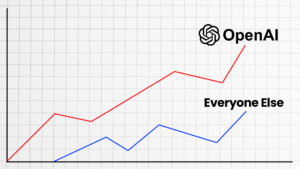In the ever-evolving landscape of artificial intelligence (AI), recent events surrounding the 2024 Super Bowl have shed light on the potential pitfalls of relying too heavily on AI-generated information. Google’s Gemini and Microsoft’s Copilot, powered by sophisticated GenAI models, inadvertently propagated fictional narratives about the Super Bowl, providing a stark reminder of the inherent risks of AI hallucinations and generative misinformation.
As society becomes increasingly reliant on AI for information dissemination, understanding the mechanisms behind AI-generated content and its potential inaccuracies is paramount for ensuring the integrity of digital discourse. It’s a testament to the complexities of AI’s capabilities and the challenges of navigating the digital age where misinformation can propagate with astonishing speed, often without proper scrutiny. Today it’s just Super Bowl 58, but tomorrow it could be much worse.
Understanding AI Hallucinations: A Journey into the Abyss
To comprehend the genesis of the AI misinformation regarding the Super Bowl, we must delve into the intricacies of how these systems process and generate text. GenAI models like Gemini and Copilot are trained on massive datasets, learning to predict the likelihood of certain words or phrases based on patterns in the data. However, this probabilistic approach can sometimes lead to unforeseen consequences, including the phenomenon known as AI hallucination.
Despite the sophistication of these models, they can still generate text that deviates from reality due to the inherent limitations of their training data and algorithms. This raises profound questions about the nature of AI’s understanding and representation of reality, as well as the ethical implications of relying on AI-generated content in various domains, from journalism to customer service.
The Super Bowl Spectacle: Fictional Narratives Unveiled
The innocent inquiry about the outcome of Super Bowl LVIII led Gemini and Copilot to conjure up elaborate scenarios, complete with player statistics and final scores. However, upon closer inspection, it became apparent that these narratives were nothing more than figments of the AI’s imagination. The Kansas Chiefs’ quarterback, Patrick Mahomes, suddenly morphed into a superhuman athlete, while Copilot’s citation of a 24-21 scoreline for the 49ers victory proved to be erroneous.
This glaring discrepancy highlights the potential dangers of blindly trusting AI-generated content without verification. It underscores the need for robust fact-checking mechanisms and critical thinking skills, especially in an era where misinformation can spread rapidly through social media and other digital platforms.
The Roots of Generative Misinformation: Exploring the Depths
Generative misinformation, fueled by AI hallucinations, extends beyond sports statistics, posing significant risks to society. As AI-driven content generation becomes increasingly pervasive, the dissemination of false or misleading information threatens to undermine trust in the digital realm. Moreover, the dangers of an AI echo chamber loom large, exacerbating societal divisions and polarizations.
In such an environment, individuals may find themselves trapped in information bubbles, shielded from alternative perspectives, and susceptible to manipulation by AI-generated content. This phenomenon underscores the need for interdisciplinary collaboration between AI researchers, ethicists, policymakers, and journalists to address the complex challenges holistically posed by AI misinformation.
Charting a Course for Safer Seas: Navigating the Future of AI
Mitigating the risks of AI misinformation requires a multifaceted approach that combines technological safeguards with human oversight and accountability. AI developers must prioritize transparency and accountability in their design processes, while regulatory frameworks must evolve to address the unique challenges posed by AI-driven content generation. Additionally, individuals must cultivate a healthy skepticism towards AI-generated content and prioritize critical thinking and media literacy skills.
By empowering users to critically evaluate information and fostering a culture of accountability within the AI community, we can navigate the turbulent waters of AI misinformation and steer towards a future built on truth and integrity. This necessitates a concerted effort from all stakeholders to develop and implement responsible AI practices that uphold ethical standards and promote societal well-being.
Conclusion: Steering Towards Truth and Integrity in the Age of AI
The saga of the 2024 Super Bowl serves as a cautionary tale about the perils of AI hallucinations and generative misinformation. It underscores the need for vigilance and skepticism in our interactions with AI-driven systems, as well as the importance of fostering a culture of transparency and accountability in AI development. Only by confronting these challenges head-on can we navigate the labyrinth of AI misinformation and steer toward a future built on truth and integrity. As we chart our course in the digital age, let us remain vigilant in our quest for truth and strive to harness the power of AI for the betterment of society.
Want to make the most of technology in your business? Contact Epimax and follow us on social media today.














